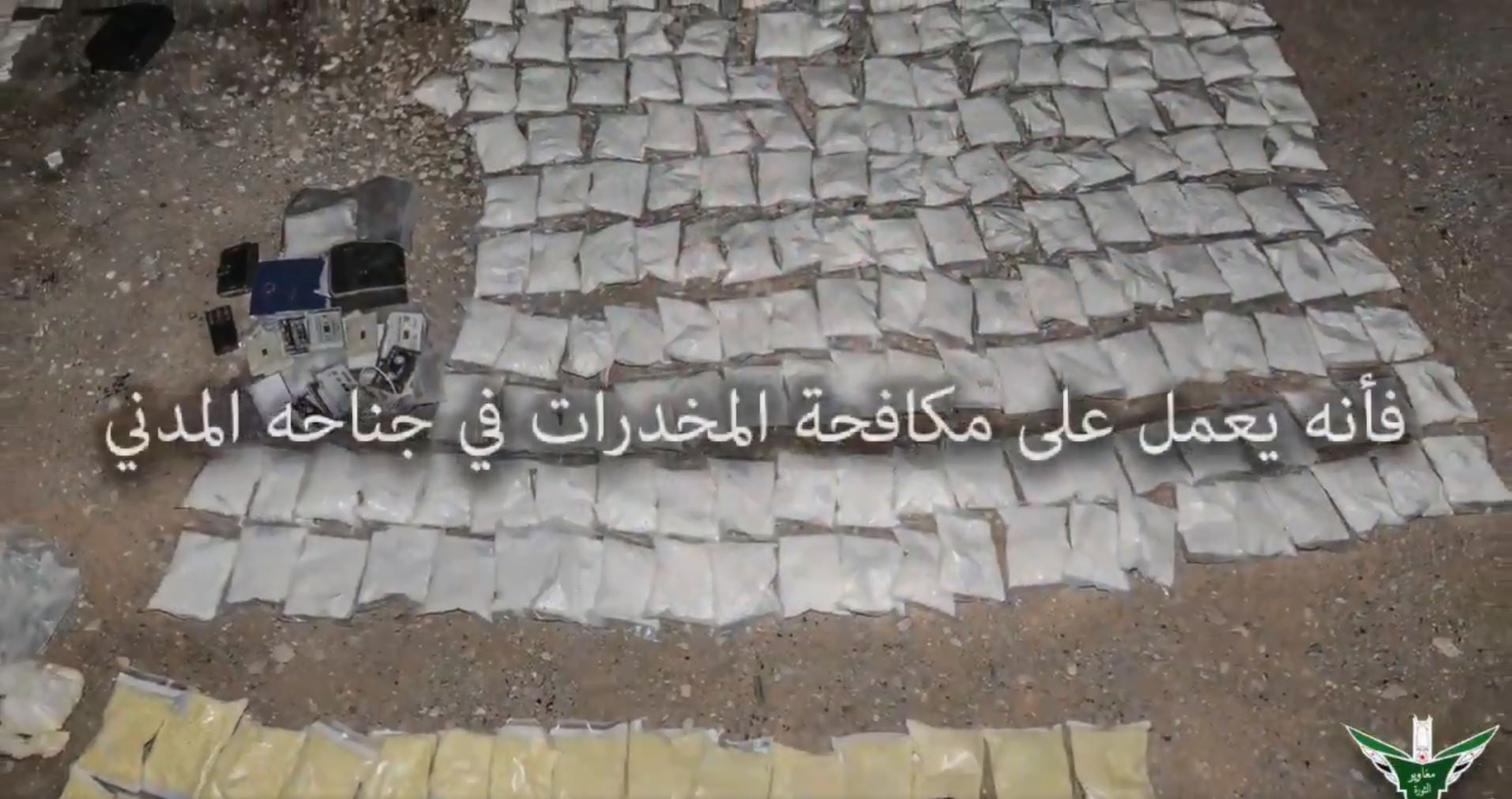The international coalition to defeat the Islamic State of Iraq and Syria destroyed a large drug cache on June 12 that was previously controlled by the militant group.
The drugs were estimated to have a black market value of roughly $1.4 million, according to a press release from Operation Inherent Resolve.
“Despite [ISIS’] facade of Islamic purity, its criminal terrorists are known drug users and traffickers,” the coalition said in its press release. “The cache included more than 300,000 pills of Captagon, an illegal drug frequently trafficked and used by [ISIS] members.”
Captagon is a highly addictive amphetamine-based drug that is banned in many countries. The drug keeps its user awake and alert for long periods of time and can help dull pain. The drug’s main ingredient is fenethylline, a chemical combination of amphetamine and theophylline.
Informally, the drug is sometimes referred to as the “Jihadi pill,” due to its reported popularity among ISIS militants.
In one instance, 122 Chinese-made machine guns were found in an ISIS cache south of Mosul, Iraq. Each weapon was affixed with one to three pouches filled with a powder that presumptive analysis revealed was a “performance enhancing amphetamine,” according to Conflict Armament Research, a U.K.-based investigative organization.
Those findings were documented in a report published in December called “Weapons of the Islamic State: A three-year investigation in Iraq and Syria.”

The most recent narcotics cache was seized by a local partner force known as the Maghawir al-Thawra, or Commandos of the Revolution. The fighters were conducting counter-ISIS operations in southern Syria within a 55-kilometer deconfliction zone near Al Tanf on May 31.
Partner forces actively patrol the Al Tanf deconfliciton zone in order to disrupt and prevent ISIS operations in the area.
The Switzerland-based Global Initiative Against Transnational Organized Crime conducted a study in November 2016 documenting the amphetamine phenomenon among ISIS militants.
RELATED

“Captagon has emerged as a conflict drug helping to sustain the war,” the report reads. “The current level of conflict within Syria has forced some traffickers to move production of Captagon to Lebanon and Turkey and potentially other countries within the region including Sudan.”
The drug’s production within Syria has been occurring for at least a decade, however the civil war exploited the breakdown of the rule of law, intensifying drug trafficking and the enrichment of actors in the conflict.
It is unclear whether ISIS was ever a net-exporter of the drug, or remained primarily a consumer.
“However, there are clear links between Tramadol [an opioid-like pain medication] trafficking and ISIS,” according to the Global Initiative study.
Seizing and destroying drugs, weapons and other contraband reduces ISIS’ abilities to fund and conduct combat operations, said Maj. Gen. James Jarrard, commander of the Special Operations Joint Task Force within Operation Inherent Resolve.
“This is another great example of their dedication and professionalism in the fight against Daesh and in the protection of the people of southern Syria,” he said.
Kyle Rempfer was an editor and reporter who has covered combat operations, criminal cases, foreign military assistance and training accidents. Before entering journalism, Kyle served in U.S. Air Force Special Tactics and deployed in 2014 to Paktika Province, Afghanistan, and Baghdad, Iraq.





